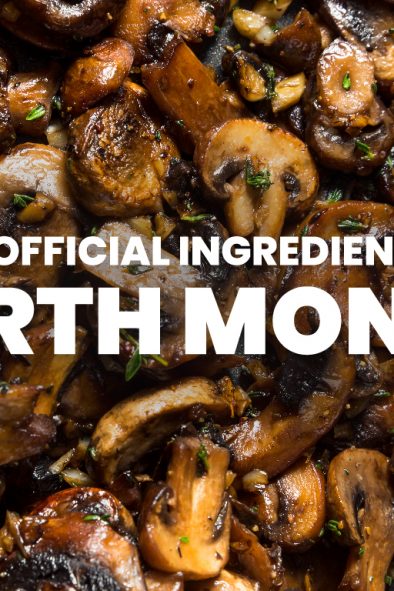Articles
Sustainable Nutrition: A Recipe for Personal and Planet Health

By guest author Marianne Smith Edge, MS, RDN, LD, FAND
Today, the parameters we set for defining what is sustainable nutrition or a sustainable diet extends beyond our personal health. Even though the term sustainability is not a 21st century concept, it wasn’t until the past decade that conversations began in earnest to discuss the connection between personal and planet health. The realization of a growing global population requiring more food without the availability of more land prompted food policy experts during the 2010 UN Sustainable Summit, to question how the intersection of food and environment was viewed.¹ These conversations have been the foundation for the entire “farm to fork” value chain to evaluate what we grow, how we grow it and what are the environmental and personal health impacts. Essentially, bringing context to the term sustainability and sustainable diets over the past few years.
From Sustainability to Sustainable Diets
For a word that is so overly used, it’s probably one of the most undefined, unclear and controversial terms. However, its origin can actually be traced backed to the late 17th century. It was not until the mid-1990s that the term “triple bottom line” was coined to clarify sustainability as the intersection of social, economic and environmental value.² Even though consumers may think about sustainable nutrition through the lens of environment, it is so much more.
Regardless of the formal definition used to define sustainable diets, there are basically four pillars.
According to Adam Drewnowski, if our eating habits are “to be sustainable, foods and food patterns need to be nutrient-rich, affordable, culturally acceptable, and sparing of natural resources and the environment.”³
A perfect description for the story of mushrooms.
The Sustainable Diet Checklist
Mushrooms have a unique growing process unlike any other produce item and are considered “one of the most sustainably produced foods in the United States .” With mushrooms being grown in enclosed controlled environments, the controlled water and energy use yields a high volume of a nutritious and affordable food. A 2018 study⁴ published in the International Journal of Life Cycle Assessment looked at the cradle-to-gate life cycle environmental impacts of mushrooms and validated the sustainable practices. For example, one pound of mushrooms requires only 1.8 gallons of water and 1.0 kilowatt hours of energy and generates 0.7 pounds of CO₂ equivalent emissions.
With the yield potential of one million pounds of mushrooms per one acre, mushrooms spare natural resource and the environment while delivering big benefits nutritionally. The nutrient-rich and affordable mushroom with the burst of umami flavor not only delivers stellar sustainable nutrition on its own but when blended with an animal protein like ground beef, it’s a dual winner. The nutrition contributions mushrooms add to the beef burger without fat, calories or sodium not only improves its nutritional profile but makes the burger more “gentle on the environment.” All hallmarks of a nutritionally sustainable food that is good for our personal and planet health.
¹Edge, MS. The Balancing Act-Nutrition and Sustainability: Understanding the Complexities, Challenges and Opportunities. Nutrition Today, 2020; 55(2): 86-92.
²Smith Edge, M. Sustainability – More than a Trend, August 15, 2019. https://agrinutritionedge.com/sustainability-more-than-a-trend. Accessed March 22, 2021.
³Drewnowski,A., Finley, J., Hess, JM., Ingram, J., Miller, G., Peters, C. Toward Healthy Diets from Sustainable Food Systems, Current Developments in Nutrition, Volume 4, Issue 6, June 2020, nzaa083, https://doi.org/10.1093/cdn/nzaa083
⁴Robinson, B., Winans, K., Kendall, A. et al. A life cycle assessment of Agaricus bisporus mushroom production in the USA. Int J Life Cycle Assess 24, 456–467 (2019). https://doi.org/10.1007/s11367-018-1456-6.





